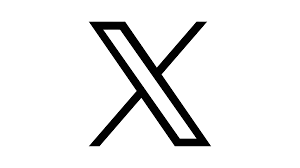Smart contracts are revolutionizing how we do business, transfer assets, and build decentralized applications (dApps). But what exactly are they — and how do they work?
Let’s break it down in simple terms, and explore real-world examples of how smart deal logic are reshaping industries in 2025.
What Is a Smart Contract?
A smart contract is a self-executing program stored on a blockchain. It automatically carries out actions once predefined conditions are met — without needing a third party.
Think of it like a vending machine:
-
You insert a coin (input).
-
The machine checks if the amount is correct (logic).
-
If yes, it delivers the item (output).
No human is required. The rules are coded and enforced automatically.
Аutomated contract offer trustless automation. That means they execute as written — no need to rely on lawyers, intermediaries, or banks.
How Do Smart Contracts Work?
Here’s how a smart contract typically operates:
-
Code is deployed on a blockchain like Ethereum.
-
It includes the terms and logic (if X happens, then do Y).
-
Once triggered, it executes automatically and irreversibly.
-
All transactions are transparent and verifiable.
The key benefits include:
-
Security: Immutable and tamper-proof.
-
Speed: No paperwork or manual approvals.
-
Cost-efficiency: No intermediaries = lower fees.
-
Transparency: Anyone can verify the contract on-chain.
Real-World Examples in 2025
Automated contract are no longer just theoretical. Today, they power:
🎮 Gaming and Digital Assets
Players buy, trade, and own in-game items securely using NFTs governed by smart contracts. For example, in blockchain games like Illuvium, players can trade assets without trusting a middleman.
🏦 DeFi (Decentralized Finance)
Blockchain agreement manage lending, trading, and yield farming protocols like Aave or Uniswap, allowing billions of dollars to flow trustlessly between users worldwide.
✈️ Travel Insurance
Flight delay insurance pays automatically via smart contracts — no claim forms, no waiting. As soon as the delay is confirmed by an oracle, the contract pays out.
💼 Freelance Payments
On Web3 platforms, freelancers can be paid in crypto through milestone-based blockchain agreement, reducing disputes and improving trust.
Key Platforms Supporting Smart Contracts
-
Polygon: Scalable Layer 2 solution compatible with Ethereum.
-
Polkadot: Enables smart contracts across interoperable parachains.
Each has unique advantages in terms of speed, fees, and developer support.
As Web3 technologies continue to evolve, automated agreements are moving beyond just financial applications. They’re being used in everything from digital identity verification and intellectual property protection to supply chain automation and decentralized governance. This rapid expansion is driving interest from developers, enterprises, and users alike—making decentralized contracts a cornerstone of the next-generation internet.
Risks and Limitations
Blockchain-powered deals are powerful — but not perfect:
-
Code bugs: Flaws can’t be reversed once deployed.
-
Oracle dependency: Off-chain data feeds can be compromised.
-
Lack of regulation: Legal gray areas still exist.
-
Scalability: High usage can slow down networks and increase fees.
This is why audits and secure coding practices are critical.
→ Related: <a href=”/decentralized-social-media-2025/”>Decentralized Social Media in 2025</a>
Why It Matters in 2025
In 2025, blockchain agreements are driving:
-
Greater financial inclusion
-
Ownership of digital identity (see our article on Web3 Identity)
-
Decentralized governance
-
Global collaboration without middlemen
Smart contracts underpin the new Web3 economy, reshaping how value is created and exchanged across borders.
❓ FAQs About Smart Contracts
1. Are smart contracts legally binding?
While blockchain-powered deals execute code automatically, their legal status depends on the jurisdiction. In many countries, they are increasingly recognized as enforceable if both parties agree to the terms.
2. Do I need to know how to code to use smart contracts?
Not necessarily. Many platforms now offer user-friendly interfaces that let people interact with blockchain agreement without writing code.
3. Can smart contracts be changed once deployed?
No — once a smart contract is deployed to the blockchain, it is immutable. Developers can create upgradeable contracts using proxy patterns, but this requires additional planning and careful structure.
<a href=”/web3-identity-digital-sovereignty-2025″>Learn how Web3 identity and smart contracts intersect</a>
Learn More and Build
Explore more at ethereum.org/smart-contracts
If you’re interested in integrating smart contracts into your project or learning how they connect with Web3 identity, get in touch via our Contact Page.
“To learn more about digital identity, check our article on Web3 Identity & Digital Sovereignty.”
📣 Find more insights & connect with us:
📬 Don’t miss a beat in Web3: Get our latest news, insights, and DAO updates — straight to your inbox.



Leave a Reply to Web3 for Beginners: Your Guide to the Future Internet Cancel reply